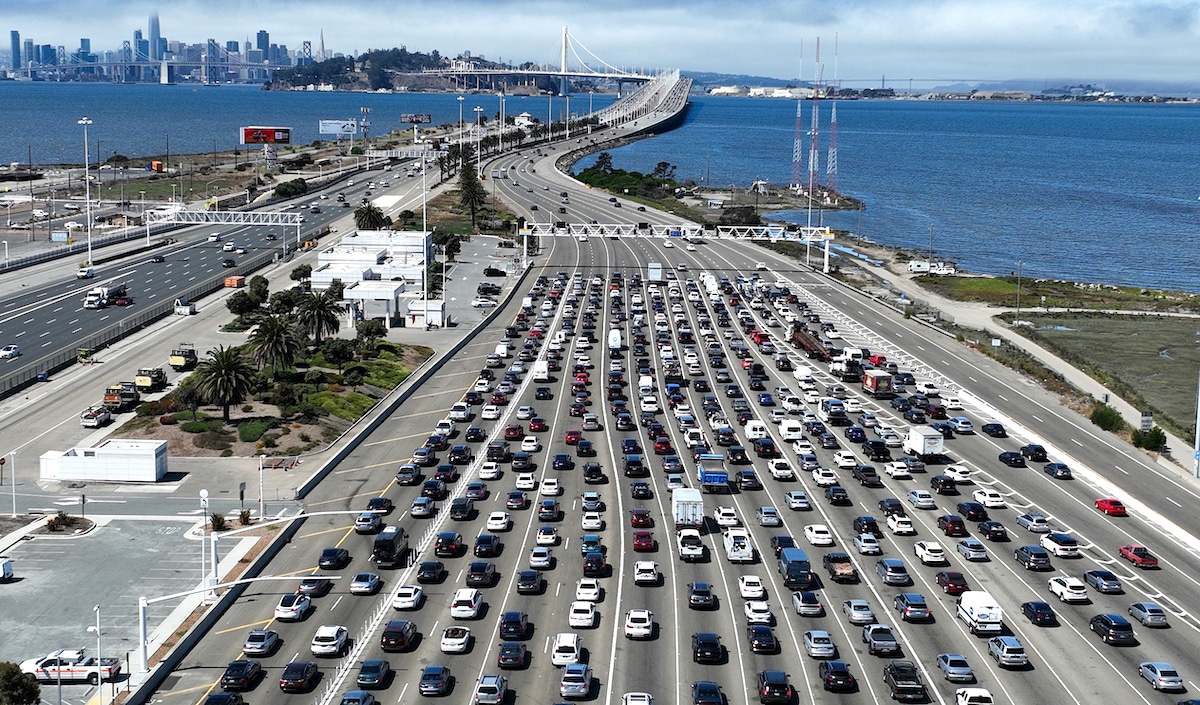California Votes Against Tax on Wealthy to Fund EV Incentives

 Why you can trust us
Why you can trust us
Founded in 2005 as an Ohio-based environmental newspaper, EcoWatch is a digital platform dedicated to publishing quality, science-based content on environmental issues, causes, and solutions.
Proposition 30 in California has been voted against in the midterm elections. The measure would have enacted a 1.75% tax on those making over $2 million, with the funding going toward climate programs, including subsidization for zero-emissions vehicles and funds for wildfire prevention.
The measure was not supported by re-elected Democrat Governor Gavin Newsom, who argued the proposition was a way for companies, namely Lyft, to use taxpayer money for their own gain. Ride-share company Lyft was the top campaigner for a “yes” on Proposition 30, spending over $45 million in lobbying.
Supporters of the measure included the California Democratic Party, California State Association of Electrical Workers, California Environmental Voters, Working Families and Environmental Voters to Expose Greedy Billionaires and CEOs, California Environmental Voters Issues Committee, and Natural Resources Defense Council (NRDC).
“There is just no feasible path to meeting our climate, air quality, and equity goals without zeroing out tailpipe pollution,” said Max Baumhefner, a senior attorney for the NRDC, as reported by Vox.
In addition to Newsom, Proposition 30 was opposed by the California Republican Party, Educators Opposed to Corporate Handouts, the California Teachers Association, and the Howard Jarvis Taxpayers Association.
Newsom argued, “Prop. 30 is a special interest carve-out — a cynical scheme devised by a single corporation to funnel state income tax revenue to their company,” as reported by CalMatters earlier this year. “Californians should know that just this year our state committed $10 billion for electric vehicles and their infrastructure.”
If passed, the proposition would have raised $3.5 billion to $5 billion per year, growing over time, with 80% of funds going toward subsidizing new electrical vehicle purchases and developing charging stations, and the rest going toward wildfire response and prevention activities.
California aims to reach carbon neutrality by 2045 and recently initiated a ban on new gas-fueled car sales by 2035, but new hybrid and electric vehicle car sales need to double current rates to meet this goal. Transportation makes up about 40% of state emissions, The Associated Press reported.
The Yes on 30 campaign conceded on Wednesday, saying, “With Prop 30, we had a chance to create a healthier, safer future for our state and our families — one with less air pollution, fewer catastrophic wildfires and an opportunity to save our state from some of the most devastating impacts of climate change. Although we came up short, the strong support for this measure from firefighters, public health groups, environmentalists and many of the state’s leaders shows the urgency for action.”
At the time of writing, the measure was considered rejected with 60.88% voting “no” and 39.12% voting “yes.”
Subscribe to get exclusive updates in our daily newsletter!
By signing up, you agree to the Terms of Use and Privacy Policy & to receive electronic communications from EcoWatch Media Group, which may include marketing promotions, advertisements and sponsored content.

 233k
233k  41k
41k  Subscribe
Subscribe 




